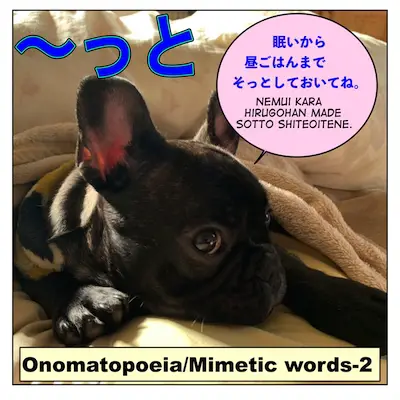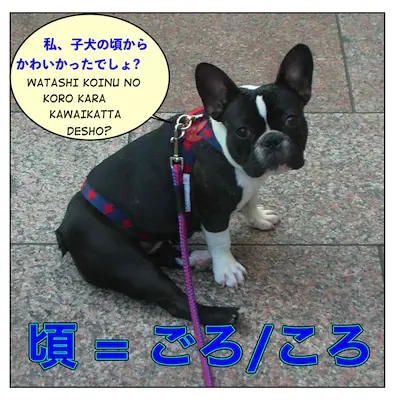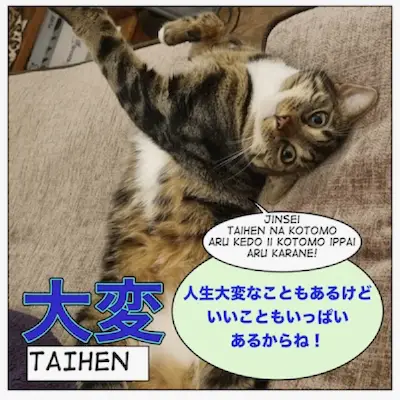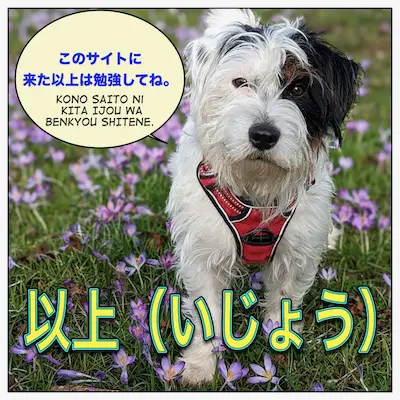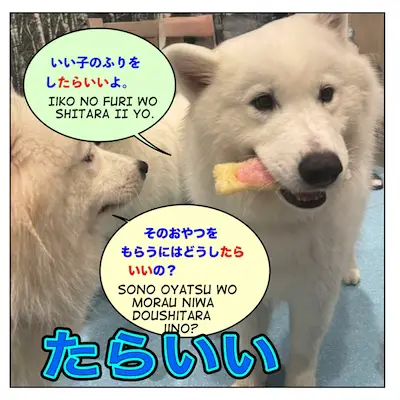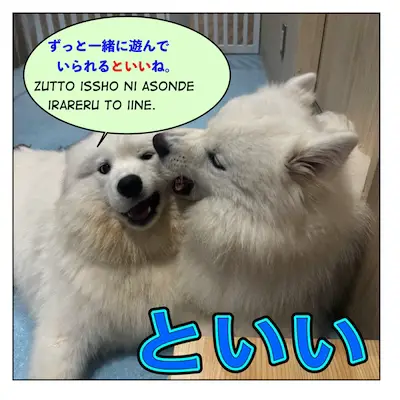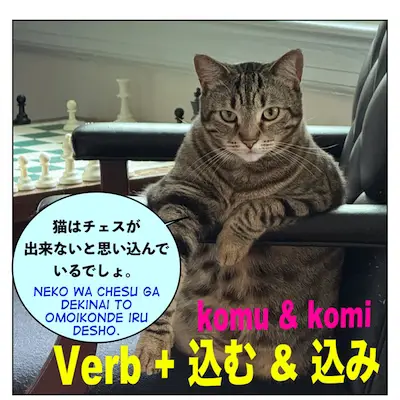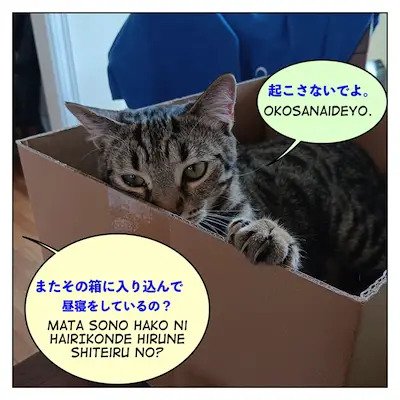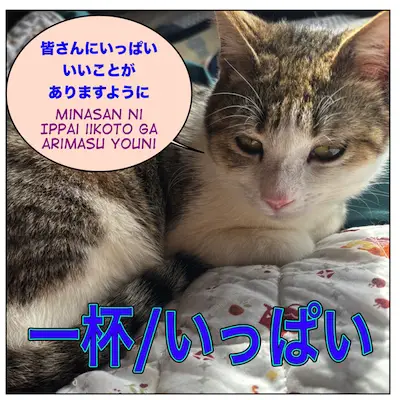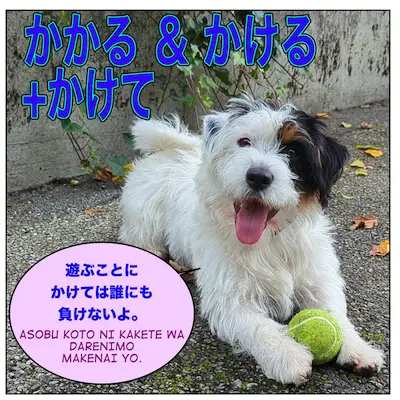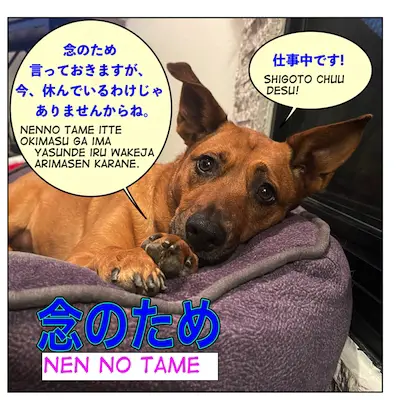
Ellie「念のため言っておきますが、 今、休んでいるわけじゃありませんからね。仕事中です! 」
= ねんのためいっておきますが、いま、やすんでいるわけではありませんからね。しごとちゅうです!
= Nen no tame itte okimasu ga, ima, yasunde iru wakedewa ariamsen kara ne. Shigoto chuu desu.
= Just to be clear, I’m not taking a break right now. I’m working!

Louie: 「万が一、雪が降っても靴下を履いているから大丈夫だよ。」
= まんがいち、ゆきがふってもくつしたをはいているからだいじょうぶだよ。
= Man ga ichi, yuki ga futte mo kutsushita wo haite iru kara daijoubu dayo.
= Even if it snows, don’t worry! I’m wearing socks!

